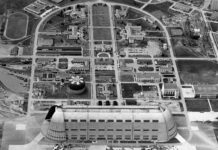FAA’s Safety Concerns Lead to SpaceX Fines and Launch Delays
WASHINGTON — The Federal Aviation Administration (FAA) recently fined SpaceX and postponed the issuance of an updated launch license for the Starship rocket, citing safety concerns. These actions have sparked a contentious debate between the FAA and SpaceX, highlighting the ongoing tension over commercial spaceflight regulations.
Background of the Dispute
The FAA’s Administrator, Mike Whitaker, provided his rationale during a September 24 hearing held by the aviation subcommittee of the House Transportation Committee. The hearing, which primarily focused on Boeing’s commercial airline operations, took a notable turn when Rep. Kevin Kiley (R-Calif.) raised questions about the FAA’s scrutiny of SpaceX. Kiley referenced a $633,000 fine imposed by the FAA on September 17 for alleged license violations during two Falcon rocket launches in 2023 and pointed out the delays in updating the license for the next Starship test flight.
FAA’s Position
Whitaker defended the FAA’s actions, emphasizing that safety is the primary concern. “I think safety is in the public interest and that’s our primary focus,” he stated. He underscored that fines are the FAA’s only means to ensure compliance with safety regulations. Whitaker alleged that SpaceX had launched without the necessary permits, violating the terms of their licenses. The FAA claims that SpaceX did not adhere to the approved changes in their launch operations, such as using a new control center and a new propellant tank farm, which had not received FAA approval at the time of the launches.
Regarding the Starship license delay, Whitaker pointed out that SpaceX had failed to disclose violations of Texas and federal laws in their application, which is a requirement for obtaining a permit. He also mentioned that there were delays in conducting a thorough analysis of the sonic booms expected from the returning Super Heavy booster, which SpaceX plans to land at the launch site for the first time.
SpaceX’s Counterarguments
In response to Whitaker’s comments, SpaceX issued a letter to Rep. Kiley refuting the FAA’s claims. SpaceX asserted that Whitaker’s statements were incorrect, clarifying that the company had the necessary licenses for the Falcon launches. They also contended that the relocation of the Falcon Heavy fuel farm was to a safer, more distant location, contrary to Whitaker’s claims.
SpaceX argued that the sonic boom analysis was merely an environmental paperwork exercise and not a safety concern. Additionally, the company stated that it had a permit from Texas regulators for its deluge system, although it faces a $148,378 fine from the Environmental Protection Agency (EPA) for wastewater discharges from the system without an EPA permit.
Broader Implications for Commercial Spaceflight
This dispute raises important questions about the balance between regulatory oversight and innovation in the commercial space industry. Rep. Kiley voiced concerns that the FAA’s actions might stifle innovation, asking Whitaker if the agency needs reform to better support advancements in the commercial space sector. Whitaker acknowledged SpaceX’s innovative contributions but emphasized the need for the company to adhere to the highest safety standards, including implementing a Safety Management System (SMS) and a whistleblower program.
Industry Reactions and Future Outlook
The disagreement between the FAA and SpaceX has drawn attention from various stakeholders in the aerospace community. Some industry experts argue that stringent regulatory oversight is essential to ensure public safety and environmental protection. Others believe that excessive regulation could hinder the rapid progress and innovation that companies like SpaceX bring to the space industry.
As the commercial space sector continues to grow, finding a balance between safety and innovation will be crucial. The FAA’s role in regulating space launches is vital, but it must also adapt to the unique challenges and rapid advancements in this field. The outcome of this dispute could set important precedents for future regulatory practices and the overall development of commercial spaceflight.
Conclusion
The FAA’s recent actions against SpaceX underscore the ongoing tension between regulatory authorities and private space companies. While safety remains a paramount concern, the commercial space industry’s innovative potential must also be nurtured. The resolution of this dispute will likely have significant implications for the future of space exploration and commercial spaceflight regulations.
Further Reading
For those interested in learning more about the specifics of this dispute and its broader implications, you can watch the full hearing on the House Transportation Committee’s YouTube channel or read more about the FAA’s proposed fine here. Additionally, an in-depth analysis of the regulatory challenges faced by the commercial space industry can be found here.
For more Information, Refer to this article.


































